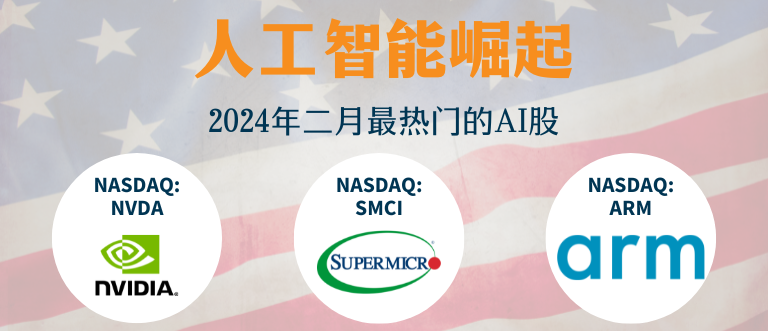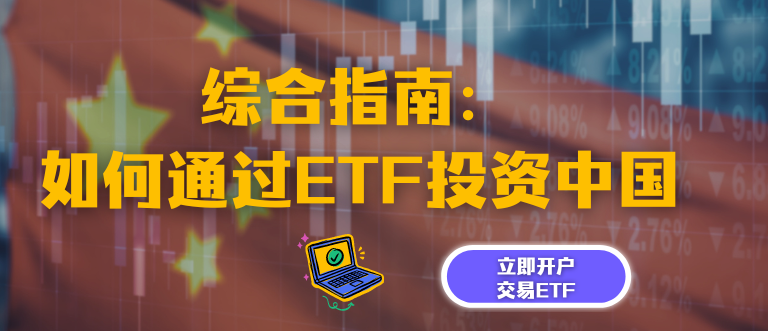Secondary Market
Table of Contents
Secondary Market
The global economy relies heavily on secondary markets, sometimes called aftermarkets. Stocks, bonds, and derivatives are some of the current financial assets that they help buyers and sellers trade. All things secondary financial markets—their role, significance, and types will be discussed in this blog.
What is the Secondary Market?
A secondary market is a digital marketplace where investors exchange company shares. What this implies for investors is that the issuing firm isn’t involved when buying and selling shares. Shares are valued according to the market’s performance rather than the issuing company’s involvement in income production in these investor transactions. Thus, the sale of shares from one investor to another is the primary means by which this market generates income.
Understanding the Secondary Market
Investors purchase and sell securities on the secondary market after they have been sold on the main market, as mentioned above. The term “stock market” is commonly used to describe the secondary market.
The phrase “secondary market” is used to describe transactions that take place on the secondary market rather than the initial market where the securities were produced. One example is the creation of mortgage security by a financial institution through the issuance of mortgages to consumers. After that, through a secondary transaction, the bank can sell it to Fannie Mae.
Secondary markets exist for a variety of assets, equities being only one of them. Investors such as investment banks and individuals trade bonds and mutual funds on secondary markets. On the secondary market, mortgages are also bought by entities like Freddie Mac and Fannie Mae. There are several reasons why secondary markets are significant. They help investors get their money out of the market first. Investors may purchase and sell securities without risking a loss in value thanks to a centralised location that facilitates trading with many traders. It opens the market to smaller merchants as well.
Functions of the Secondary Market
The vast majority of stock trades take place in the secondary market. Simply said, it’s a venue where regular people may buy shares in publicly traded companies. The secondary market facilitates constant, active trading, which aids in the liquidity of assets and the regulation of price fluctuations. Therefore, investors may also use the secondary market to sell their shares and get cash quickly.
As a means of price determination, the secondary market helps find share prices by analysing supply and demand.
Additionally, the secondary market serves as a regulated haven for investors by providing a structured environment in which they may purchase market assets. One may say that the secondary market is a window on a country’s economic health.
Types of Secondary Market
- Stock Exchanges:
The trading of publicly traded company stocks is made possible by these marketplaces. The securities dealers do not facilitate transactions between buyers and sellers. Strict rules are set up to ensure that trading is safe and secure. Since the exchange is acting as a guarantee, the level of counterparty risk is almost nonexistent. The commission and exchange fees make the transaction cost relatively high in exchanges.
- Over-the-Counter (OTC) Markets:
Investors transact with one another in these decentralised marketplaces. Markets like this are characterised by intense competition for larger orders, which in turn causes sellers to charge different amounts. Due to the one-on-one nature of the transaction, the risk is greater than on an exchange. Some examples of over-the-counter marketplaces include the currency exchange market.
Conclusion
The secondary market is most commonly referred to as the stock market. Here is where you should go when you want to trade securities on the market. Even though it’s merely secondary in name, the market is vital to stock trading. It’s where buyers and sellers meet, and the indexes reflect the patterns investors see there.
Examples of Secondary Market
A few instances of transactions that take place in the secondary market are:
- In stock trading, one participant on the New York Stock Exchange (NYSE) purchases shares from another participant in a publicly listed corporation, like Apple or Amazon. These shares are currently sold on the secondary market; the firm originally issued them in an initial public offering (IPO).
- The bond market is a place where investors may purchase bonds issued by companies like Microsoft or Coca-Cola from other bond buyers. Originally issued as a means of capital raising, the bond is currently trading on the secondary market.
- Investing in mutual funds: On the secondary market, one can buy shares in a mutual fund, such Fidelity or Vanguard, from another investor. Mutual funds are currently traded on the secondary market. They invest in a diverse range of securities, including bonds and equities.
- In options trading, one participates by purchasing call options on stocks like Tesla or Facebook from other market participants. The right, but not the duty, to purchase the underlying stock within a specific time frame at a predetermined price is conferred to the investor by the call option.
- The futures market is a place where investors may purchase contracts to buy and sell commodities like crude oil or gold. The investor is bound to purchase or sell the underlying commodity at the agreed-upon price and on the agreed-upon future date by virtue of the futures contract.
Frequently Asked Questions
Investors trade securities in the secondary market, which is separate from the primary market where the securities are generated. Companies that have never sold bonds or stocks to the general public before, such as in an initial public offering (IPO), do so in the primary market.
Securities are traded among investors on the secondary market following their sale on the primary market. Everyone refers to the secondary market as the stock market.
The secondary market is quite busy with both institutional and retail investors. Institutional investors include things like pension funds, insurance companies, and mutual funds. They help find prices by influencing market supply and demand through their trading operations.
After securities are listed for sale on the main market, investors and traders can trade them on the secondary market. Instead of dealing directly with the issuing business, investors transact with each other on the secondary market.
Investors can simply exchange their securities in secondary marketplaces. Investors have access to a vast pool of potential purchasers in the secondary market, where they may sell their assets at any moment. If an investor needs money, they may easily get it by selling their investments.
Related Terms
- Subordinated Debt
- Basket Trade
- Notional Value
- Speculation
- Quiet period
- Purchasing power
- Interest rates
- Plan participant
- Performance appraisal
- Anaume pattern
- Commodities trading
- Swing trading
- Interest rate risk
- Equity Trading
- Adverse Excursion
- Subordinated Debt
- Basket Trade
- Notional Value
- Speculation
- Quiet period
- Purchasing power
- Interest rates
- Plan participant
- Performance appraisal
- Anaume pattern
- Commodities trading
- Swing trading
- Interest rate risk
- Equity Trading
- Adverse Excursion
- Booked Orders
- Bracket Order
- Bullion
- Trading Indicators
- Grey market
- Intraday trading
- Futures trading
- Broker
- Head-fake trade
- Demat account
- Price priority
- Day trader
- Threshold securities
- Online trading
- Quantitative trading
- Blockchain
- Insider trading
- Ex-dividend date
- Equity Volume
- Downtrend
- Derivatives
Most Popular Terms
Other Terms
- Options expiry
- Adjusted distributed income
- International securities exchanges
- Settlement currency
- Federal funds rate
- Active Tranche
- Convertible Securities
- Synthetic ETF
- Physical ETF
- Initial Public Offering
- Buyback
- Secondary Sharing
- Bookrunner
- Notional amount
- Negative convexity
- Jumbo pools
- Inverse floater
- Forward Swap
- Underwriting risk
- Reinvestment risk
- Final Maturity Date
- Payment Date
- Margin Requirement
- Mark-to-market
- Pledged Asset
- Yield Pickup
- Trailing Stops
- Treasury Stock Method
- Stochastic Oscillator
- Bullet Bonds
- Contrarian Strategy
- Exchange Control
- Relevant Cost
- Dow Theory
- Stub
- Trading Volume
- Going Long
- Pink sheet stocks
- Rand cost averaging
- Sustainable investment
- Stop-limit sell order
- Economic Bubble
- Ask Price
- Constant prepayment rate
- Covenants
- Stock symbol
- Companion tranche
- Synthetic replication
- Bourse
- Beneficiary
Know More about
Tools/Educational Resources
Markets Offered by POEMS
Read the Latest Market Journal

本文旨在为中级外汇交易者提供必要的信息和知识。它将涵盖我们上一篇文章 “五分钟看懂世界上最活跃的市场-外汇差价合约(FX CFD)...

解锁台湾股市的投资潜力!深入了解由强大的技术驱动型经济推动的股票市场,2023 年机械和电气设备将占出口的 69%。在政治稳定、投资者友好的法规和健全的法律框架下,探索台积电和富士康等全球顶级企业。台湾股市值得称赞的历史表现和在国际贸易中的的重要性使其更具吸引力。在这个科技实力雄厚、经济稳定、充满活力的股票市场中,抓住增长机遇!

了解外汇市场 外汇交易市场又称外汇市场,是一个买卖货币的全球性金融市场。它是全世界规模最大、流动性最强的金融市场,每日交易量超过 6 万亿美元。但外汇市场有一个重要却常被忽视的一点,就是它受交易心理的影响。在本文中,我们将探讨外汇市场的复杂性,还有把重点放在交易心理与传统交易策略共同发挥的关键作用...

五分钟看懂世界上最活跃的市场 -外汇差价合约(FX CFD)
外汇交易市场俗称外汇或外汇市场,是全球金融市场的支柱。它是世界上最活跃的市场,2022 年 4 月,全球交易额达到创纪录的每天 7.5 万亿美元[1] 。这个活跃的市场为交易者提供了利用货币价格波动赚取利润的机会。在本文中,我们将解释外汇市场的基本原理,助您了解其投资机制。 什么是外汇? 外汇市场是一个分散的全球市场,世界上所有货币都在这里进行交易...

随着通胀数据趋向 2% 的理想目标,人们普遍乐观地认为,在任何可能的降息之前,市场都不会受到不利影响。以下是美股市场2024年的一些重要事件,投资者在做出投资决策时可以参考留意。

根据《东南亚态势报告:2023》,失业和经济衰退是当前东南亚面临的主要挑战。各国采取了各种政策和措施以恢复经济,尽力摆脱新冠疫情的影响。尽管如此,越南在经济和社会方面展现出了令人满意的复苏迹象,经济增长逐季上升,成为世界经济的亮点之一。虽然全年GDP增速放缓至5.05%,低于政府6.5%的目标,但越南仍然是地区和世界经济增速较快的国家之一。






















